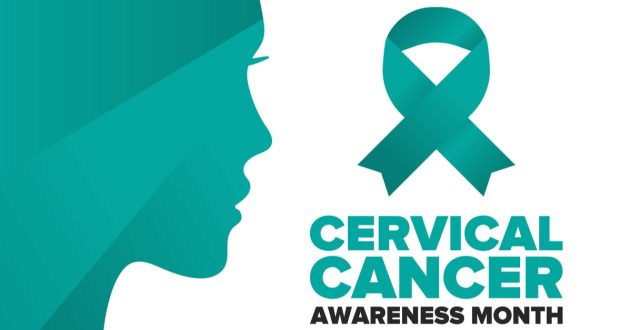By: Red Hot Mamas
Published: January 22, 2022
January is National Cervical Cancer Awareness Month, an observance created to raise awareness about the role regular screenings play in cervical health.
According to the American Cancer Society, an estimated 14,480 new cervical cancers were diagnosed in the United States in 2021 with more than 4,000 deaths.
Globally, cervical cancer is the fourth most common cancer in women and it is one of the most readily prevented. The cervix is the area of a woman’s body between her vagina and uterus. When cells in the cervix become abnormal and multiply rapidly, cervical cancer can develop. If cervical cancer is left untreated, it can spread to other organs and it can be life-threatening.
Checking for cervical cancer is very important. A cervical, or Pap smear is a test where cells are removed and analyzed to determine if there is presence of a virus, which can cause cancer. It also looks for precancerous cells, which can be treated before they develop into cancer.
Cervical cancer may be caused by certain types of a sexually transmitted virus called human papillomavirus (HPV). Women who have had any kind of sexual contact, should have regular smears. And, they should also have smears even if they have had the HPV vaccine.
Knowing the risk factors for cervical cancer is key to prevention. Some risks are within your control; some aren’t. But if you have any risk factors, take a proactive approach and ask your doctor about incorporating screening tests as part of your wellness plan.
What puts you at risk for contracting cervical cancer?
Infection with human papillomavirus (HPV) is one of the most important risk factors for developing cervical cancer.
- Unprotected sex before the age of 18.
- Having a large number of sexual partners.
- Having one or more STDs such as chlamydia.
- Having given birth to three or more children.
- Using birth control pills for a long time (five or more years).
- Women with obesity are more likely to develop certain types of cervical cancer.
- Having a family history of cervical cancer is also a risk factor.
- A weakened immune system.
- If you smoke, you are twice as likely to develop cervical cancer
- There are many different things that you can do to help lower your risk of getting cervical cancer. These can include:
- Getting vaccinated against (HPV)
- Receiving regular cervical cancer screenings
- Practicing sex with a condom or other barrier method
- Limiting your number of sexual partners.
- Don’t smoke
If you’re diagnosed with cervical cancer, talk with your doctor to discuss your options.
Where can you find more information about cervical cancer?:
www.cdc.gov/cancer/gynecologic
Cervical Health Awareness Month (cancer.org)
 Red Hot Mamas In Charge of Change.
Red Hot Mamas In Charge of Change.




